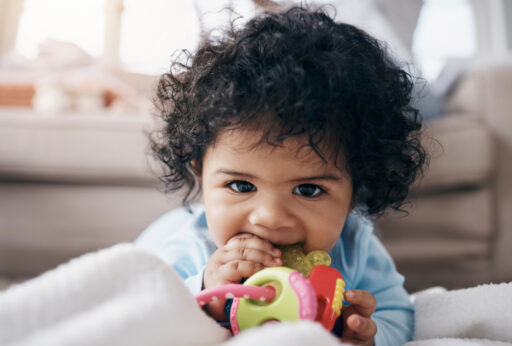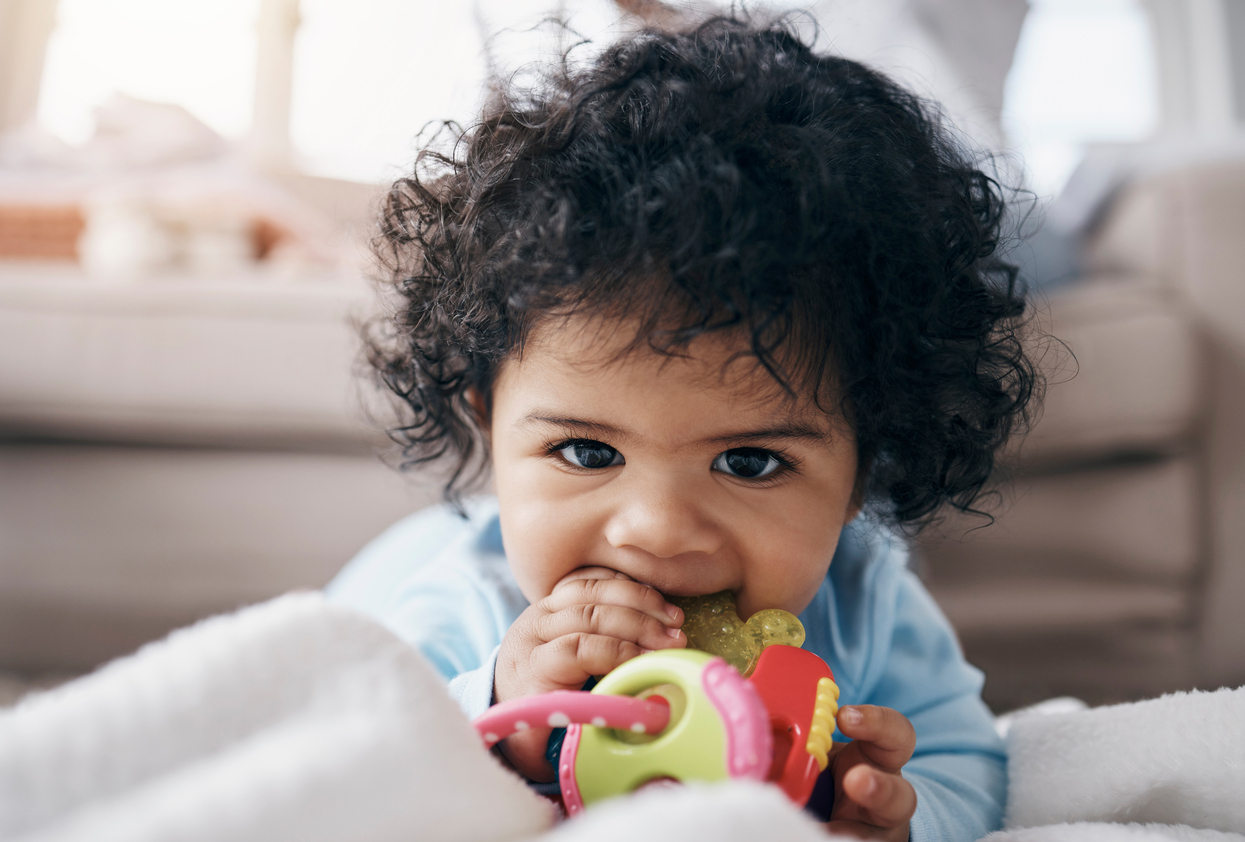Tooth or Dare: When Will Your Baby Finally Stop Teething?
Healthy’s Summary
Teething can be a challenging time for both babies and parents. But when does it actually end? Most babies stop teething around 24-30 months, once their 20 primary teeth have come in. However, some children continue to experience mild discomfort as their molars settle.
Did you know? By the time a child turns three, nearly 90% have all their baby teeth. But the process starts as early as 4-6 months!
Do Boys and Girls Teeth at Different Rates?
While every baby is unique, studies suggest that girls tend to start teething slightly earlier than boys. This is because girls often experience faster overall physical development in early infancy.
- Girls: First teeth may erupt as early as 4 months, and they often complete teething slightly before boys.
- Boys: May begin teething closer to 6 months, with second molars emerging a bit later. Despite these general trends, teething timelines can vary widely among infants, and differences between boys and girls are usually small.
Teething Timeline: What to Expect
Every baby is different, but here’s a general timeline of when teeth appear:
| Age | Teeth Coming In |
| 4-7 months | First bottom front teeth (central incisors) |
| 8-12 months | Top front teeth (central incisors) |
| 9-16 months | Top and bottom lateral incisors (next to front teeth) |
| 13-19 months | First molars (back teeth for chewing) |
| 16-23 months | Canines (pointed teeth next to molars) |
| 23-30 months | Second molars (final set of baby teeth) |
By age 3, your toddler should have a full set of 20 primary teeth!
Signs Your Baby is Still Teething
Teething symptoms can come and go, but common signs include:
- Excessive drooling
- Chewing on fingers or toys
- Swollen or red gums
- Mild fever (below 100.4°F)
- Fussiness, especially at night
- Change in appetite or slight diarrhea
Fact: Teething does not cause high fever or severe diarrhea. If your baby has these symptoms, consult a doctor.
When Does Teething Pain Stop?
Teething discomfort typically fades once all baby teeth have erupted. However, some toddlers may still experience mild gum irritation until their second molars settle, around age 2-3.
Tip: The most intense teething periods usually happen around 6-12 months and 12-18 months, when multiple teeth are coming in.
How to Soothe a Teething Baby
Here are pediatrician-approved ways to ease teething pain:
Cold teething rings or frozen washcloths – Provides numbing relief.
Chilled (but not frozen) soft foods – Try yogurt or applesauce.
Gentle gum massage – Use a clean finger to rub their gums.
Teething toys – Look for BPA-free options.
Infant pain relief – If needed, ask your pediatrician about baby-safe ibuprofen or acetaminophen.
Avoid: Numbing gels with benzocaine (linked to serious health risks).
Ask Healthy
Final Thoughts: When Teething is Over
Most babies finish teething by 2-3 years old, but symptoms may linger as molars fully settle. If teething seems excessively painful or affects eating and sleeping long-term, check with a pediatrician.
Sources:
- American Dental Association on Teething
- NHS Guide on Soothing a Teething Baby
- FDA Warning on Teething Gels
Want to dig deeper?
Thriving as a New Mom
Caring for a newborn can be both exciting and overwhelming. “Thriving as a New Mom” is designed to support you through these early months with tailored guidance, practical tips, and a space to track your well-being. From managing sleep schedules to finding time for self-care, this program helps you balance the challenges and joys of motherhood, empowering you to care for your baby while also caring for yourself.
Enroll in one of Healthy’s Programs to log, track and learn more about your Health, one conversation at a time.
Start Program




